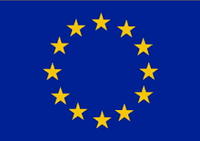European Commission proposed changes to the rules determining the place of supply of services

The European Commission issued an amended proposal on 20 July 2005 of a Directive to amend the Sixth VAT Directive (77/388/EEC) as regards the place of supply of services (COM(2005) 334 final).
(a) Background. On 23 December 2003, the European Commission presented a Proposal (COM(2003) 822 final) concerning the place of supply of services between taxable persons (B2B). Following open consultations by the European Commission on possible improvements to the VAT rules that apply when services are supplied to private consumers, the present proposal improves the first draft and includes a new set of rules covering services supplied by taxable persons to non-taxable customers (B2C). Currently, the general rule with regard to the place of supply of services is that it is deemed to be the place where the supplier has established his business or has a fixed establishment from which the service is supplied. To eliminate anomalies when services are supplied in an international context, a set of exceptions to this general rule are also currently in place. The Commission has nevertheless stated that due to the increasing supply of services across borders, the general rule no longer ensures that the tax accrues to the Member State of consumption, and therefore can provide unfair competition.
(b) Proposal. The Commission proposes to break up Art. 9 of the Sixth VAT Directive into several Articles (Art. 9 to 9(j)) which will contain the new set of rules covering services supplied by taxable persons to taxable persons and non-taxable customers. The most significant proposals included in the Directive are summarized below:
- According to the general rule contained in the new Art. 9, for services supplied to taxable persons the main rule is that the place of supply of services is the place where the customer/taxable person has established his business or has a fixed establishment to which the service is supplied. With regards to the place of supply of services to non-taxable persons, the main rule is the place where the supplier has established his business or has a fixed establishment from which the service is supplied;
- Arts. 9(a) to 9(c) provide for three specific place of supply rules applicable to services rendered both to taxable and non-taxable persons. These exceptions to the general rule cover: services related to immovable property (Art. 9(a)); passenger transport services (Art. 9(b)); and services relating to cultural, artistic, sporting, entertainment, or similar activities (Art. 9(c));
- Art. 9(d) under the title “specific services to taxable persons”, provides for an exception from the general rule for services that can be described as tangible services (i.e. services supplied for immediate consumption at a readily identifiable location) when supplied to a taxable person;
- Arts. 9(e) to 9(i) provide for specific place of supply rules of services to non-taxable persons, which apply in some cases wherever such persons are established or in some cases only to non-taxable persons established or residing within the Community. These exceptions to the general rule cover: transport of goods(Art. 9(e)); specific listed services (Art. 9(f)); services which can be supplied at a distance (Art. 9(g)); and services supplied by an intermediary (Art. 9(h));
- Art. 9(i) provides for specific rules applicable to supplies of services to non-taxable persons outside the Community. Accordingly, the place of supply of certain listed services supplied to a non-taxable person who is established or who has his permanent address or usual residence outside the Community is the place where that person is established, has his permanent address or usually resides;
- Art. 9(j) allows Member States to consider the place of supply of services mentioned in Art. 9 to 9(i) (instead of only supplies governed by the current Art. 9(2)(e)) to be where the effective use or enjoyment take place, i.e., either outside the Community (Art. 9(j)(a)) or within the territory of the country (Art. 9(j)(b)); and
- The proposed directive also includes an extension of the scope of the information exchanged between Member States through the VIES system (Art. 22(6)(b)), requiring taxpayers to include services on their recapitulative statements.

0 Comments:
Post a Comment
<< Home